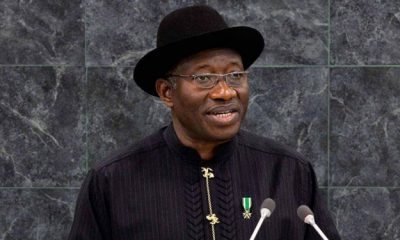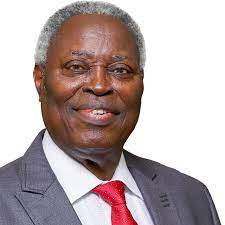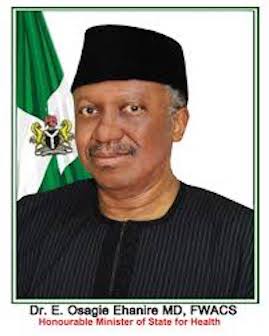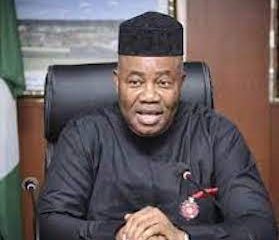FEATURES
Transforming Jalingo into Modern City
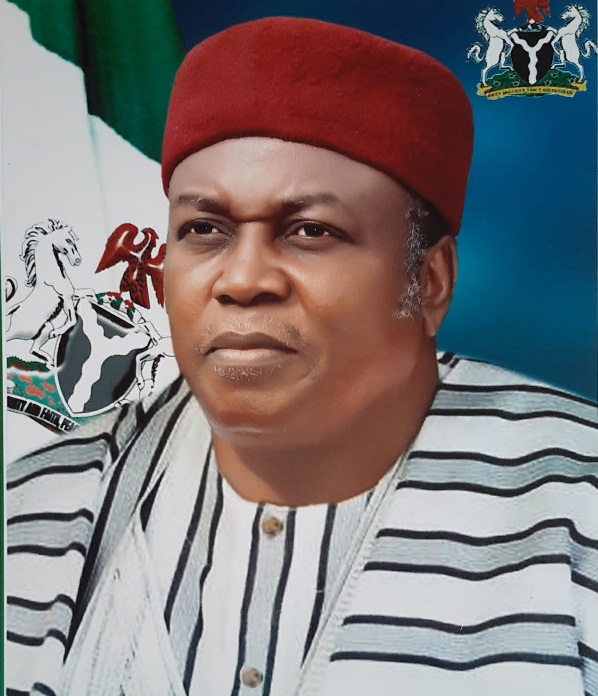
Three factors; public, private investments and migration may turn Jalingo, the Taraba state capital, into the social and economic hub of Nigeria’s North-east. Victor Gai writes from Jalingo
Jalingo became the Taraba State capital in 1991 when the State was created.
Since then, it has suffered from under-development because. the State itself is so isolated from the other parts of the country. With very poor road network connecting the State to other parts of the country, lack of an airport and rail system, Jalingo has been largely cut off from corporate Nigeria.In fact, Taraba has been so regarded in popular parlance as a “rural state” while Jalingo the State capital is described as a small town compared to its peers across the country.
As a State, Taraba is bordered by Adamawa and Gombe to the north, Plateau and Nasarawa to the west, Benue to the south and the Republic of Cameroon to the east. Yet, it is poorly linked to those States. For instance, travelling to Plateau State, one would have to traverse Adamawa, Gombe and Bauchi, whereas Taraba shares boundary with the State through Ibbi LGA. It is the same when travelling to the FCT. The journey involves a round trip through Benue and Nasarawa, whereas there is a short cut in Nasarawa through Ibbi.
All these have contributed to the slow development of Jalingo, the State capital. But all these are about to change due to the factors earlier mentioned.
The coming of the Darius Ishaku government, signals a game changer in urban development in the State. Ishaku, an architect, may be wary of doing less than his predecessors in structural developments. He must do more to justify his rating as an experienced architect and former Minister.
Therefore, his administration is undertaking on a N37 Billion dual carriageway which welcomes you into the city from the north and south. The project which is close to completion is a 10km stretch of road and has walkways, pedestrian bridges, a flyover, a bridge and well structured kerbs. This project promises to transform the State capital as Jalingo, after 30 years of being a State capital, seems to be the only capital city in Nigeria without a dual carriageway at its entry and exit points.
The government is also building a modern water reservoir on the Mount Jalingo which would also serve as a recreation centre. This project promises be a tourist potential while also meeting the water needs of the ever increasing population of the city.
Daily Asset also learnt that the contractor handling the mega road project, Cranenburg Nig. Ltd, would fix some major township roads in the city for free.
One other potential game changer in the capital is the ongoing container terminal project at the Danbaba Suntai airport. This would boost trade and commerce in the city and expand the Jalingo market as goods would now be easily transported to the city using cargo planes. This is a privilege that other big cities in the north-east don’t have.
The ongoing bridge across River Benue at Ibbi is also supposed to open the State and by extension Jalingo to other parts of the country.
In the private sector, Jalingo is experiencing massive investments in hotels, petrol and gas stations, private homes, shopping malls and night clubs. Daily Asset found out that the property business has become very lucrative in the city due to the high demand for land and landed property. Farmlands in bushes far beyond the city limits have mostly been bought by persons who intend to develop them or in anticipation of the future when their prices would appreciate.
Just in December last year, a modern night club, owned by one of the top politicians in the state was opened in Jalingo. Club Duchess is a huge investment with a swimming pool and lodging accommodation. It is by far the most ambitious private investments of its kind in Jalingo and can be compared with those in the big Nigerian cities. Similar investments are fast cropping up in the city and in a matter of time, Jalingo may attain a stature never envisaged. These investments would no doubt impact positively on the social life of the city.
Meanwhile, a factor that is contributing more to the development of the city is migration. The rate of influx of persons from the troubled north-east States of Borno, Adamawa and Yobe is simply amazing and calls for concern. Taraba is touted to be the most peaceful State in the north-east sub-region and by implication, it has become a safe haven for people fleeing from the crises of Boko Haram and ISWAP. This influx has been a source of concern for both the State and security authorities.
On several occasions, Gov. Ishaku has had to warn traditional rulers and citizens against harbouring strangers that could serve as a threat to the security of the State. The influx of foreigners, mainly from the Republic of Cameroon and Chad has also put the border police on the alert all the time.
These migrants are in the categories of the internally displaced persons (IDPs), traders and artisans.
Besides this, Jalingo has always been host to persons from the neighbouring States of Gombe, Bauchi and Adamawa, who traditionally, are engaged as water vendors, dry season farmers, provision retailers, commercial tricycle operators, fruit sellers and hawkers.
The level of rural-urban migration is quite quite huge and on the increase. This is evident by the day to day influx of persons into Jalingo from towns and villages across the State with their luggage and the springing up of small business in corners around the city. This is due to the search for greener pastures in the city and the lack of opportunities in the villages. This social pressure has increased the demand for housing in the State capital. There is the fear that the potential population explosion could be a trigger for social vices and crime in the city. It could also be a huge economic potential for the State if well utilised.
The State government can therefore enter into a partnership with the private sector in the area of land and property development. This is an area where State governments in Nigeria are reaping huge revenues. The new Taraba state Geographical Information System is in a better position to spearhead this move in collaboration with the Taraba state Investment and Property Company Ltd.
NEWS
Akpabio, Oborevwori, Ogbuku to grace 13th Extraordinary General Assembly of South–South Monarchs Forum
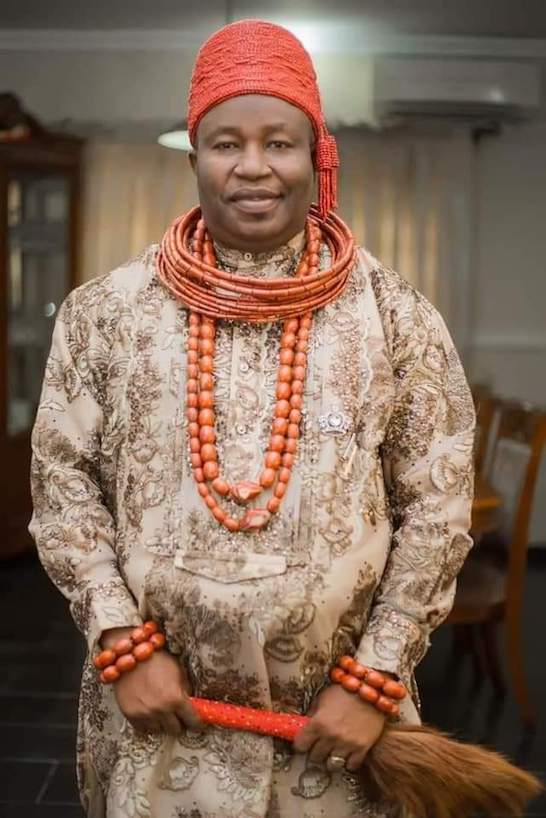
The 13th Extraordinary General Assembly of the Forum of South–South Monarchs is scheduled to hold in Asaba from May 21 – 22 May, with the President of the Senate and Chairman of the National Assembly, Senator (Dr) Godswill Obot Akpabio CON as Special Guest of Honour and the Executive Governor of Delta State, Excellency Rt Hon Elder Sheriff FO Oborevwori as the Chief Host.
A statement issued in Abuja on Sunday by the Chairman, Planning Committee, HRM Pere Stanley Perediegha Luke – Kalanama VIII (JP) – Pere of Akugbene – Mein Kingdom, and 1st Vice Chairman, Delta State Council of Traditional Rulers, said the event will hold at the Unity Hall, Government House, Asaba, on the theme: “Strengthening Stakeholder Collaboration for Development of the South – South Region: The Role of the Traditional Institution. ”
According to the statement, the Managing Director of the Niger Delta Development Commission (NDDC), Chief Dr Samuel Ogbuku, is expected to be the Guest Speaker, while the keynote address will be presented by Adele L. Jinadu, former Executive Director, Centre for Advanced Social Sciences (CASS) Port Harcourt and Adjunct Professor, Department of Political Science, University of Lagos.
Membership of the Forum consists of all First-Class Traditional Rulers and Members of the State Councils of Traditional Rulers of the six States of the South – South geopolitical zone: Akwa Ibom, Bayelsa, Cross River, Delta, Edo and Rivers States.
The statement also explained that the 13th Extraordinary General Assembly of the Forum is being organized in partnership with the Ashcraft Centre for Social Science Research to intensify collaboration, deepen synergy and articulate a common front among the diverse Stakeholders in the Region and beyond towards achieving the strategic imperatives of security and sustainable socio-economic development for the Region.
“The Forum is consciously aware that emerging national realities require the collective and deliberate action of all the gatekeepers to achieve the aspirations of the founding fathers and people of the Region,” it added.
Giving a background to the meeting, the statement noted that the Asaba event was in consonance with the fact that sustainable development, peace and security are major factors in nation building and national security, which constitute the fundamental underpinnings in the existence and survival of any society or nation.
“Therefore, the traditional institution must be alive to its responsibilities in achieving its natural mandate of promoting peaceful co-existence, peace and security in their domains, and also fostering national security which is fundamental in national development,” it said.
It expressed the firm belief of the South – South Monarchs Forum believes that by building Stakeholder synergy, the meeting shall engender shared responsibilities towards achieving the institutionalization of the road map and priorities of the policy frameworks crafted to boost economic revival, security and stability of the Region.
“It is also the expectation of the Forum that the derivatives from the meeting shall regenerate confidence in securing Foreign Direct Investment into the Region’s productive Sectors as canvassed by His Excellency President Bola Ahmed Tinubu, GCFR, at different international fora; and also boost capital growth and turnkey business startups and development,” it said.
While lamenting the palpable security challenges in the South-South Region, especially the unfortunate killing of 17 military personnel in Okuama community in Ughelli South LGA on 14th March, 2024, the said it was expected that the Asaba meeting would provide the avenue to extensively deliberate on how to avoid recurrence in any community within the Region.
It expressed appreciation to the Senate President, Senator Godswill Obot Akpabio; the Executive Governor of Delta State, Rt Hon Sheriff FO Oborevwori; the Managing Director of NDDC, Chief Dr Samuel Ogbuku and; all political leaders from the zone for their support geared towards making the forthcoming meeting a success.
“The subject matter is very sensitive to the aspirations of the Region. It is hoped that the proceedings from this General Assembly shall also inject fresh ideas and initiatives into the overall architecture of the Forum to reinforce a systemized and collective framework in actualizing its mandate.
“We also look forward to the robust participation and inputs of all Stakeholders, both in the public and private circles towards achieving the strategic imperatives of this event. The Forum is hopeful that all Stakeholders will consider this as a patriotic duty to our fatherland and contribute to the success of this event,” the statement said.
FEATURES
Bobrisky, Naira Abuse and Matters Arising

In February 2024, the mass media was awash with reports of the arrest of Bassey Idio for currency racketeering by operatives of the Uyo Zonal Command of Economic and Financial Crimes Commission (EFCC).
The 59-year-old ‘naira trader’ was apprehended following intelligence and surveillance revealing his illicit cash transactions involving both local and foreign currencies.
He was found selling N700,000 new Naira notes, comprising 12 bundles of N500 notes totaling N600,000, and a bundle of N1000 notes amounting to N100,000.
Idio, later confessed to the crime and was convicted.
Before then, in a widely circulated video, Federal lawmaker Ibrahim Abuna was seen distributing money to a crowd presumed to be his constituents.
Abuna was representing Mafa, Dikwa and Konduga federal constituency of Borno inthe House of Representatives.
He demonstrated his generosity by tossing money from a balcony, disregarding the potential risk of a stampede as people fought to catch the airborne naira notes.
The recipients consisted of young men and women, as well as elderly persons.
Sadly, no arrest or conviction was made since 2021 when the video was made.
On daily basis the Abuna scenario is repeated in different parts of the country as celebrities and politicians try to outdo one another as they engage in money spraying at social events and even political gathering.
Recently, there was a dramatic twist in this otherwise “normal” behavior among Nigerians as a Federal High Court in Lagos sentenced Idris Okuneye ‘!Bobrisky’, a popular crossdresser, to six months in prison for naira abuse.
Justice Abimbola Awogboro, popularly known as Bobrisky, who was prosecuted by the EFCC, was jailed as a deterrent to those that may engage in naira abuse.
The judge also said that Bobrisky should use his influence to teach people about legal money practices.
He said Bobrisky’s offence is contrary to, and punishable, under Section 21(1) of the Central Bank Act 2007.
Naira abuse has been illegal in Nigeria for a long time, but spraying naira notes or throwing its bundles during social events has been a tradition in Nigeria for many years but unfortunately those in indulge in them have not been brought to book under the Act.
The Act recognses naira abuse to include actions like throwing, stamping, engraving, selling, and mutilating the currency. They carry a penalty of a ₦50,000 fine or six months in prison.
According to the Act, tampering includes impairing, diminishing, or lightening coins or notes, as well as defacing them through stamping, engraving, mutilating, or other forms of deliberate abuse.
It notes that spraying, dancing, or stepping on the naira during social occasions or otherwise is considered an abuse and defacing of the currency, punishable under this Act.
A financial expert, Mr Rilwan Afolabi, says the Act aims to protect the integrity and value of Nigeria’s currency by imposing strict penalties on those who tamper with or abuse it.
According to him, by defining various forms of tampering and abuse, including common practices like spraying or dancing on the naira during social events, the Act seeks to deter such behaviours land promote respect for the currency.
“The inclusion of penalties for hawking, selling, or trading in Naira notes further reinforces the seriousness with which the law treats any actions that could undermine the currency’s stability and legitimacy.
“Overall, the Act reflects the CBN’s commitment to maintaining the integrity of Nigeria’s monetary system and ensuring public confidence in the national currency,” he said.
However, many people think the punishment meted to Bobrisky was too harsh and want leniency, while others suggest community service for non-violent crimes like this.
Social activist, Aisha Yesufu, has criticised Bobrisky for admitting guilt to the charge of naira mutilation.
In a write-up on X, formerly known as Twitter, Aisha wondered why Bobrisky quickly admitted guilt.
“Who advised him to plead guilty?”, she screamed, while raising concerns about how spraying money could be equated to mutilating money and why the law is selectively enforced.
She added: “Worst case scenario, I would have advised him to plead ‘No Contest.’
Yesufu raised more posers: “If spraying money is considered mutilation, then what about politicians throwing money at people?
“Mutilation and spraying money how are they the same? Did Bobrisky pick a scissors and started shredding the Naira
“We just have a jungle where anything goes because some people’s morality is offended.
“If Bobrisky has crimes he has committed, prosecute him on those and not this selective prosecutions.”
Also reacting, Deji Adeyanju, a lawyer and social activist, expressed concern over the six-month sentence handed to Bobrisky.
The sentence, delivered without the option of a fine, has raised questions about the severity of punishment for what some perceive as a cultural practice.
While acknowledging the importance of upholding the law, Adeyanju highlighted Bobrisky’s status as a first-time offender and his pledge to utilise his platform to raise awareness against Naira mutilation.
He urged the courts to consider the cultural context surrounding such offenses and emphasised the need for extensive public sensitisation before prosecution.
The issue of selective enforcement was also raised, as Adeyanju questioned why he was singled out for prosecution when others were reportedly engaged in similar acts during the event in question.
He cautioned against the perception of bias in law enforcement and called for a fair and impartial approach to justice.
In light of these concerns, Adeyanju proposed an alternative approach to handling such crimes as Naira mutilation, advocating community service as an ppropriate form of punishment.
He reaffirmed his commitment to upholding the rule of law and protecting human rights while urging security agencies to consider alternative measures for addressing such offenses.
Adeyanju said that the ongoing debate surrounding Bobrisky’s sentence underscored broader discussions about cultural practices, law enforcement and the balance between tradition and legal compliance in Nigerian society.
As stakeholders continue to weigh in on the matter, it remains to be seen how authorities will address the complexities surrounding Naira mutilation and similar offenses in the future.
Also, they call for comprehensive campaigns on the importance of preserving the integrity of naira.
Such initiatives, they say, could help instill a culture of respect for the currency and discourage behaviours that undermine its integrity and value. (NANFeatures)
FEATURES
President Tinubu at 72: Celebrating a Life in Forward Motion

By Keem Abdul
He is 72 on Friday, March, 29, 2024. But in a nod to the current mood across the nation (occasioned by the hardship and insecurity in the land) President Bola Ahmed Tinubu has said he wouldn’t be celebrating that auspicious day.
Instead, according to a release from his media office, he has told his friends, well-wishers and associates to donate to charity rather than spend valuable resources placing goodwill messages and advertorials in print and electronic media outlets to mark the day.
The president, according to the release made particular reference to the tragic killing of a number of soldiers and police officers in Delta State, as well as the serious security breaches by criminal elements in various parts of Nigeria (which has led to an unacceptably high toll of death, injury and loss of property) as reasons why a celebration at this time would be grossly inappropriate – if not downright insensitive.
In place of a celebration, Tinubu says he would use the day to reflect and re-dedicate himself to the task of building a more stable, secure, prosperous and united Nigeria – in line with his mandate as the leader of the commonwealth, namely, to make life better for all her citizens. He, however, acknowledged as some sort of a birthday gift, the recent release of the students kidnapped some weeks ago in Kaduna and Sokoto States. But a gift of far greater import, he added, would be the emergence of a more stable, more secure, virile, prosperous and united Nigeria.
That being said, though, even as the President reflects on his life’s journey so far and his ascendance to the highest office in the land at this time, many Nigerians and even non-Nigerians will also be pondering the phenomenon called Asiwaju Bola Ahmed Tinubu, GCFR, the combination of qualities and attributes (and the unique set of circumstances) that have brought him to this moment in his life and in the evolution of the Nigerian nation.
It is hard to measure the essence of a life as multifaceted and dynamic as that of the man Bola Tinubu. Suffice it to say – as those who know him well have repeatedly done – that he remains an enigma. That description of one’s essential character may be a cliché, but in the case of Asiwaju Bola Tinubu, it is all too true.
Since the advent of Nigeria’s current democratic dispensation in 1999, Asiwaju Tinubu has become perhaps the most constant factor in defining the outcomes of electoral contests in the country – and even more so in his home state of Lagos. His almost 100% success rate in this regard is not by accident. A great writer once said that the heights great men attained are ‘not by sudden flight.’
Tinubu’s success as a politician testifies to his capacity for deep reflection and prompt action in equal measure.
On one hand, he has always been deliberate and intentional in the planning and execution of his strategies, doing nothing that is superfluous or forced. His caution, in other words, is matched by his ability to execute his plan – in a way that meshes into the whole vision which he has crafted for himself and the people that he leads. Every step he takes has been methodical and fills a gap in his overall quest for the enthronement of a continuous cycle of progress and prosperity within his sphere of influence.
He is a man with extra ordinary sensory perception who’s in tune with his inner self thus making him understand that there’s no force on earth strong enough to restrict the procession of promises of God. His perception wasn’t tainted by experience of betrayals rather he recognised that’s there’s no betrayal that he went through that didn’t work together for his good, that there’s never a dagger thrown at him that God didn’t convert to a stronger him.
1999 to date has been a time of almost constant struggle for Asiwaju Tinubu. His battles with the federal government, and with the internal opposition in Lagos, are too well-known to recount here. But the question is: Why does he fight so hard, For whom, or what, is he fighting? Wealth? Power for power’s sake? Fame and recognition? If so, why does he still keep fighting NOW, even AFTER having acquired these things in some measure?
One unmistakable answer to these questions – no matter one’s background or political and religious affiliation – would be that Asiwaju Tinubu is a man driven, not just by personal ambition or group interest, but by the altruistic desire to confront the forces of economic underdevelopment and social rot, no matter what it may cost him personally. His willingness to go all out in pursuit of his goals and convictions – even if it means sacrificing himself for others and the society as a whole, is truly remarkable.
In the rough-and-tumble of Nigerian politics where elections are usually a clash of weapons rather than a contest of ideas and ideologies, and most politicians are devoid of both, Tinubu’s principles and idealism can be hinged on the simple South African maxim of “Ubuntu” (I am because we are).
This understanding of the value of an unshakable bond between brethren is what has shaped the dynamics of Tinubu’s actions and engagements with other stakeholders. On more than one occasion, he has professed a desire to build the community; the people in it and the institutions and traditions that govern them – based on his belief that once a society is healthy; all elements within it will be significantly impacted.
It is also the reason he has built the careers of so many other leaders, men and women who have gone on to become political giants in their own right since 1999 – again, based on his belief that various people with diverse capacities in various places can coalesce to build a better and stronger society. No matter what his detractors may say, Tinubu’s investment in the lives and political fortunes of others is far from personal or individualistic, far from it.
Many distinguished persons in the society are the products of this investment. The results so far are a demonstration of the fact that the power to make a difference in the lives of Nigerians is within his grasp – and in our grasp if we all make an effort.
Much has been said about the Jagaban’s unique combination of fearlessness and humanity. Though he never goes out of his way to court controversy, he never runs away from one, especially when he has restrained himself and sought all ways to seek rapprochement with the other party. His capacity for compromise and respectful dialogue is how he has been able to build a team of highly dedicated men and women around himself.
As his close associates mark his 72 years on earth (one way or another) or join him in his reflections on the state of Nigeria and his mandate to lift the country and its people out of our present quagmire, it’s the prayer of all right thinking and patriotic Nigerians that the good Lord who has seen fit to allow Tinubu to occupy that lofty position will keep him in good health and preserve him so that he can fulfil the purpose for which God brought him into existence, that God will strengthen him, equip him with the physical energy and profound wisdom, understanding and knowledge that he needs to drive the vision that transformed Lagos into a globally-competitive megacity and the 5th largest economy in Africa.
His promise to replicate that transformation on a national scale is still on track, and with the help of God and the committed cooperation of the Nigerian people, the mission will be fulfilled.
Happy birthday, Mr. President!
May your strength be Renewed. God bless Mr. President. God bless Nigeria.
Keem Abdul, publisher and writer, hails from Lagos. He can be reached via +2348038795377 or Akeemabdul2023@gmail.com

